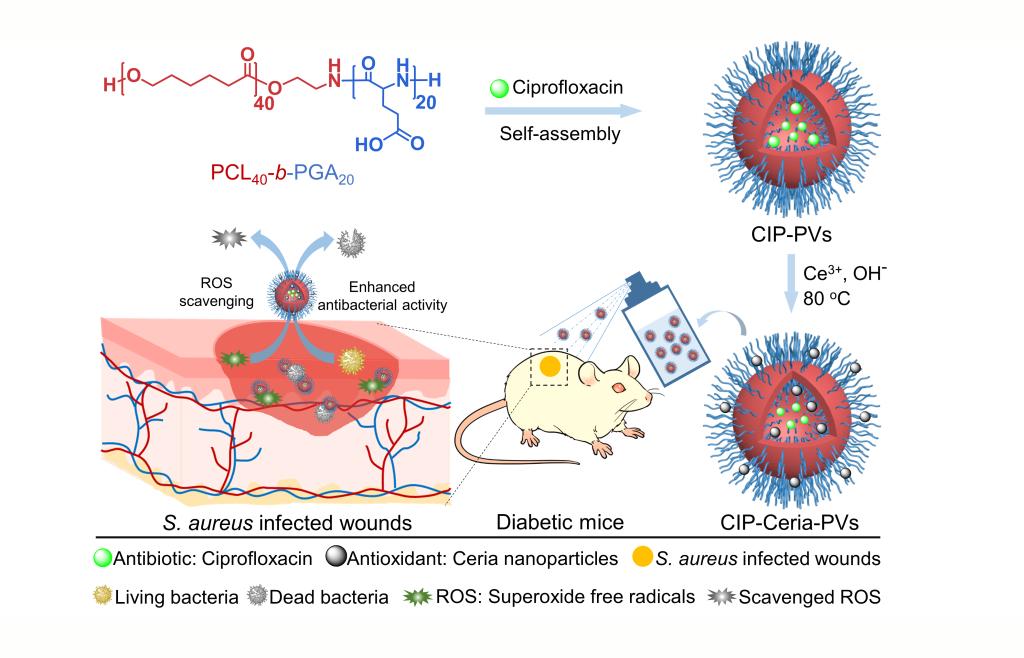Combined Antioxidant–Antibiotic Treatment for Effectively Healing Infected Diabetic Wounds Based on Polymer Vesicles
作者:Wang, T.; Li, Y. R.; Cornel, E. J.*; Li, C.*; Du, J. Z.* 时间:2021-04-22 点击数:

Abstract
Infected diabetic wounds are difficult to heal due to high reactive oxygen species (ROS) concentrations and recurrent infections. Such wounds can easily deteriorate into a diabetic ulcer, a chronic diabetic complication with a very high mortality rate. Herein, we propose a combined antioxidant–antibiotic therapy based on poly(ε-caprolactone)-block-poly(glutamic acid) polymer vesicle to treat infected diabetic wounds. This was realized by in situ decoration of stable, well-dispersed ceria nanoparticles onto ciprofloxacin (CIP)-loaded polymer vesicles. These resulting CIP-loaded and ceria-decorated polymer vesicles (CIP-Ceria-PVs) exhibited high superoxide dismutase mimetic activity to inhibit superoxide free radicals (the inhibition rate reached ∼50% at an extremely low cerium concentration of 1.25 μg/mL). When the cerium content is in the range of 5–20 μg/mL, the CIP-Ceria-PVs showed the highest protective capability to normal L02 cells from damage of superoxide free radicals. In addition, the CIP-Ceria-PVs exhibited enhanced antibacterial activity (the dosage of CIP in CIP-Ceria-PVs was reduced by 25–50% compared to free CIP). In vivo treatment of infected diabetic wounds was performed on a diabetic mice model. The CIP-Ceria-PVs could effectively cure infected diabetic wounds within 14 days. Overall, a combined antioxidant–antibiotic therapy was proposed by introducing ceria nanoparticles and CIP into polymer vesicles for the treatment of infected diabetic wounds
文章链接:ACS Nano 2021, DOI: 10.1021/acsnano.1c02102